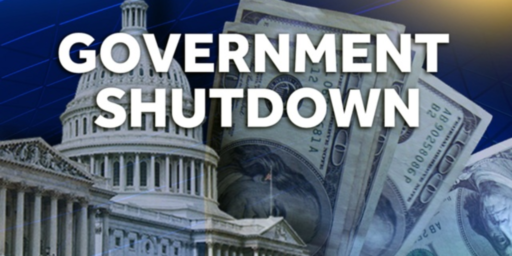RAND: Ways To Improve Government Performance
RAND has a new book coming out entitled, High-Performance Government: Structures, Leadership, Incentives. It consists of a series of essays by RAND scholars suggesting ways the federal government should reform itself:
- Federal agencies should be organized and streamlined according to the requirements of their missions, with each task and goal tailored to serve an agency’s mission. Agencies should be comprised of subunits grouped together to promote coordination, limit redundancies, increase accountability and spark other improvements.
- The process under which the president nominates and the Senate confirms senior federal officials needs to be streamlined, accelerated and made less costly to better identify and attract the best candidates. A senior group of advisors from the executive and legislative branches should provide leadership and guidance throughout each stage of the presidential appointment process. This group should help develop and implement improvements, monitor progress and measure results.
- The federal government needs to do a better job of hiring employees and developing leaders. The government should simplify and shorten the employee hiring processes, support career exchanges, fund leadership research and training, and improve career education and development programs. An objective interagency team is needed to diagnose problems with the hiring system by identifying the requirements of the different federal positions, developing benchmarks for success and implementing solutions. Following the lead of private industry, the federal government should track workforce competency requirements, individual employee progress, and participation in development programs. Developing future leaders should involve the public, for-profit, nonprofit and educational sectors.
- Just as governmental structures and positions must be formed to accomplish specific missions, the federal government needs to establish compensation and reward systems to help recruit and retain good government workers. Salary levels should be tied to performance goals, which in turn are based on the organization’s mission. Government should set salaries higher than that of comparable private sector positions to attract and retain federal employees. Incentives to federal employees can result in better performance.
There have been moves in recent years to overhaul the federal personnel system to make it more flexible. Not surprisingly, they have mostly been opposed by the employees’ union. Uniformity and rigidity are hallmarks of bureacracy and not necessarily a bad thing. Remember, the rationale for a bureaucratized civil service was to prevent the corruption of the spoils system.
Another huge obstacle to these reforms is that federal salaries are generally capped at the level of a Member of Congress. Despite the public outcry whenever Congress raises its own pay–for rather obvious reasons–Congressmen are woefully underpaid given their level of responsibility, the cost of living in Washington, and the requirement to maintain a home in their District. Most Members, though, are independently wealthy and have little incentive to incur the wrath of the voters over raising their pay. Either congressional pay needs to be set, along with other federal salaries, by some sort of independent commission (whose recommendations would still have to be enacted by Congress to comply with the Constitution) or civil service and congressional salaries need to be decoupled.






I’ve long said that those paid with taxpayer money should have no right to unionize. Give ’em rights to an arbitration process on an individual basis, and leave it at that.
I have a number of suggestions, too.
– all Senators should be wise, venerable statesmen
who care about nothing but the welfare of the Republic
– Presidents should be beyond all human failings
– cows should give chocolate malted milk
– there should be a mandatory minimum income in the United States of $1,000,000
My suggestions are about as likely to come to pass as the suggestions of the RAND scholars.
Would the RAND scholar be shocked, shocked to learn that politics determines these things?
And on your point about pay rates you need to consider total compensation not just wages. Part of that compensation is job security. It’s darned hard to fire federal employees.
What really needs to happen is that the same efficiencies that have been put into place in the private sector need to be put into effect in government and its handmaidens education and health care. But that would take competition and without the spur of competition it simply won’t happen.
Dave Schuler is right. The structure of Departments and agencies is almost solely due to politics on Capitol Hill. Witness the debate over intelligence reform. Which committees retained jurisdiction over the agencies fundamentally set where agencies would end up. This has always been the case. (Another prime example, pension regulation: split between Treasury and Labor, which is a direct reflection of the split in jurisdiction over the issues on the Hill.)
In the main, I would say union pressure is important, but not the critical factor in the shape on government at the federal level.
By the way, Rand is at least 65 years behind others making these recommendations. For reference to this, you should check out the Hoover Commission report on government reform.
Cheers from Inside the Beltway!
Dave Schuler beat me to it. All these things are obviously good, but there is no hint here of how to achieve them. Only a fundamental change to the incentive structure is likely to change the way Washington works. I’m not holding my breath.
Oh, this is rich. My stomach hurts from laughing so hard.
Yes, the recommendations are good, but they shall never come to pass. The US Government gets more bogged down by red tape every year. Making wholesale changes to the way they treat their personnel is never going to happen. Sadly.